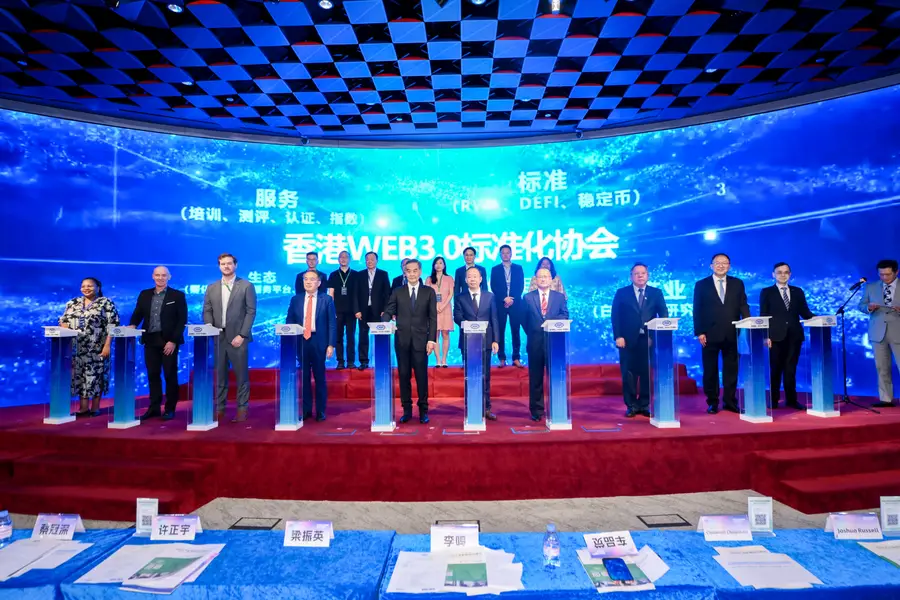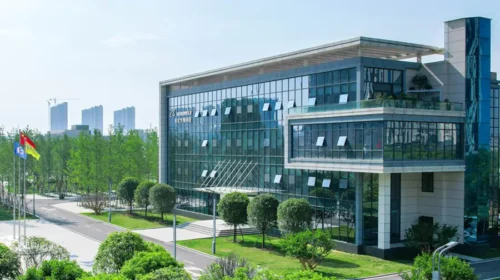WORK Medical enters strategic partnerships in bid to explore RWA initiatives

The medical products maker hopes to leverage RWA technology to transform and leverage its current product infrastructure and budding AI business
Key Takeaways:
- WORK Medical has formed a new alliance with the Hong Kong Web3.0 Standardization Association and was appointed as the organization’s “council vice chairman.”
- The company has also entered into a collaboration with Ruijin Hospital’s Wuxi Branch to accelerate the development of a next-generation, AI-driven smart clinical ecosystem
By Doug Young
Hong Kong kicked off a new era in its embrace of virtual assets on Aug. 1 with the official launch of a regulatory and licensing framework for virtual currencies known as stablecoins. A steady stream of Chinese companies has begun experimenting in the city with virtual assets and their underlying blockchain technology since then, covering a wide range of industries.
Medical products seller WORK Medical Technology Group Ltd. (WOK.US) became the latest to join that parade, as it unveiled a major new initiative to explore real world asset (RWA) tokenization and related blockchain technology in a partnership with the Hong Kong Web3.0 Standardization Association, which promotes the high-quality development of the global Web3.0 industry through standardization research and efforts.
The deal comes just over a year after WORK Medical listed on the Nasdaq, and is part of the company’s evolving “Healthcare + Payment + Technology = RWA + Web3 + AI” strategy. WORK Medical also plans to strategically collaborate with one or more qualified firms from the financial sector, which would provide a key compliance channel for its asset tokenization ambitions.
Tokenized RWA, or real-world assets with value that have been digitalized, is projected to surge to over $50 billion by the end of this year, according to a report published in May by digital currency market-making firm Keyrock and tokenization platform Centrifuge. The report also pointed out that tokenized RWA will be dominated by U.S. treasuries, whose value alone will push the sector size to over $28 billion.
Three areas for collaboration
WORK Medical laid out three main areas for collaboration with its new Hong Kong partner. The first area involves the tokenization of “high-quality assets owned or invested in by WORK Medical,” the company said. It pointed out it can leverage both its status as a Nasdaq-listed company, as well as its expertise and assets related to its medical device business, including AI healthcare assets. It wasn’t more specific, but assets it could probably tokenize might include its receivables, investment products and intellectual property.
The second area WORK Medical’s new partnership will explore is equity investments, which could include co-investments or participation in funds and other financial vehicles to accelerate its move into RWA for potential tokenization and achieve shared strategic goals.
The third area involves development of RWA technology, which would leverage the Hong Kong Web30 Association’s recently launched RWA registration platform. That platform facilitates collaboration on a range of related functions, including blockchain-based title verification, asset issuance, and cross-chain transactions, while ensuring regulatory compliance and asset security.
The company’s recent activities indicate it is already accumulating the expertise to develop and manage such assets. In February, it announced a partnership with another medical device company that included the potential establishment of “joint investment funds to align industrial and financial resources.” It said that partnership could also involve investment in healthcare infrastructure, development of advanced technologies and global acquisitions.
WORK Medical’s new partnership puts it at the head of a nascent but rapidly growing wave of Chinese companies looking for new business opportunities in the fast-emerging business of digitalized RWAs. Any company owning or possessing rights to RWAs, both their own and assets owned by others, can technically enter the space.
Building smart clinical ecosystem
On Monday, WORK Medical also announced another new partnership with the Wuxi Branch of the Ruijin Hospital-Shanghai Jiao Tong University School of Medicine. Under the partnership, WORK Medical will support the hospital’s efforts to advance hospital informatization. It will also assist in efforts to integrate AI with the hospital’s multimodal medical data, such as text, imaging, and lab results.
The two sides plan to enhance WORK Medical’s multimodal AI solutions from single-image to complex data types by leveraging the hospital’s clinical and expert resources. The collaboration aims to develop AI models for diverse healthcare scenarios, establishing a framework for data governance, model training, and clinical translation.
WORK Medical Chairman and CEO Wu Shuang said the two new partnerships – with the Hong Kong Web3.0 Standardization Association for RWA innovation and with the hospital for AI-driven healthcare – are strategic moves aimed at unlocking new growth avenues and building long-term value.
The company’s inaugural annual earnings report for its fiscal year through September 2024, issued earlier this year, also contains hints that it was dabbling in financial markets, not only through its IPO but also through other investing activities, in the year before its listing.
WORK Medical’s new alliance could take it in a completely new direction from its core business of producing and selling masks and other medical products like artery compression tourniquets. As the Covid pandemic receded and demand for masks declined, leading to falling prices, the company’s revenue from its mask business fell 69% in its fiscal year through September 2024 to $1.6 million from $5.1 million the previous year. That was partly offset by an 18% increase in its revenue for other medical devices, which rose to $9.4 million from $8 million.
Its latest financial report also shows that WORK Medical has engaged in commodities trading, which generated $400,000 in income in its latest fiscal year through September 2024. The company also derived a sizable $15.7 million in cash from financing activities for the fiscal year, up sharply from a year earlier and greater than the $11.5 million in revenue it generated from sales of its core medical products for the year.
In the finance sector, supply chain financier Linklogis late last month also formed a partnership with XRP Ledger, the organization overseeing the ripple cryptocurrency, aimed at exploring the digitalization and tokenization of RWA.
The Bamboo Works offers a wide-ranging mix of coverage on U.S.- and Hong Kong-listed Chinese companies, including some sponsored content. For additional queries, including questions on individual articles, please contact us by clicking here
To subscribe to Bamboo Works free weekly newsletter, click here





